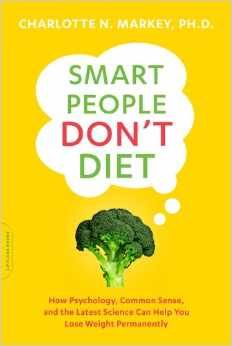Stress
Unusual Ways to Lose Weight
Weight loss isn’t always planned. And it isn’t always healthy.
Posted August 14, 2017

by Charlotte H. Markey and Lorie A. Sousa
We recently happened across a blog posted by Lena Dunham that discussed her frustration with the never-ending media attention devoted to “ways to lose weight.” She offered some of her own “diet tips,” including, “sleeping 19 hours a day,” “anxiety disorder,” and “an election that reveals the true depths of American misogyny.”
We want to add to Dunham’s list, in her spirit of irritation with fad diets, and with as much sarcasm as we can muster. We’ve lived through unplanned weight loss and we know that prioritizing our health and well-being is more important than the never-ending quest for the “perfect” weight.
So, here is our “top 10” unusual, unadvisable, and unplanned ways to lose weight:
1) Develop an intolerance to gluten. You don’t have to have celiac disease to be sensitive to or intolerant of gluten. In fact, some research indicates that at least as many people have non-celiac wheat sensitivity as do people who have celiac disease. The symptoms of both conditions vary from person to person, but weight loss is one possible manifestation of the body’s inability to properly digest gluten.
2) Get divorced. It’s been well documented that marital transitions are associated with weight fluctuations. For many, weight loss is likely to occur with divorce. However, marriage is associated with weight gain. It starts with the wedding cake, but it doesn’t end there it seems. But no one gets married planning to ultimately get divorced—even if it means weight loss.
3) Find yourself with a rockin’ case of the flu and/or diarrhea. The flu sounds like a pretty innocuous illness to have, until you find yourself sick in bed for a few days barely able to lift your head high enough to drink some water. Yes, you are likely to lose weight. But, is it worth it? Hardly. Especially, if you fall prey to complications that linger.
4) Lose a parent, partner, or other loved one. Although not everyone responds to grief in the same way, in the short term, the grieving process rarely involves eating. It’s actually believed to be adaptive to not spend precious resources processing food when coping with acute hardship is the priority.
5) Get food poisoning. We’ve all been there. One minute you are feeling fine and the next minute you find yourself committed to an evening in the bathroom. According to the CDC, 48 million people get sick each year and thousands die from foodborne illnesses. Inevitably, if you step on the scale after a bout with some bad, raw seafood, you’ll find yourself lighter.
6) Acquire colitis or another digestive disease. The National Institute of Diabetes and Digestive and Kidney Diseases estimates that 60-70 million people are affected by digestive diseases in the U.S. Some of these may be experienced as short-term or relatively manageable diseases while some are serious, complex, and life-threatening. Regardless, weight loss is often an identifying symptom. But, no one wants to lose weight because they’re physically unable to digest food properly.
7) Drink way too much and then literally “toss your cookies.” Some lessons are learned the hard way. For far too many of us, our limits, when it comes to alcohol, are apparent only once it is too late. Want to dehydrate yourself to the point of weighing a few pounds less? Binge drinking will accomplish that goal (but it can also lead to complications that may be fatal!).
8) Stress. Real stress can mean there is no time to eat. It can feel like you are treading water and barely keeping your head afloat. There is research documenting the long-term effects of stress on obesity. But, in the short-term, some will find it hard to touch food at all when they are stressed out.
9) Morning sickness. About 50 percent of pregnancies are associated with nausea and

vomiting. A small portion of women experience this to such an extent that they lose weight during pregnancy and may experience health complications. It’s not the way anyone wants to lose weight – especially when a healthy pregnancy typically includes weight gain of 15-30 pounds.
10) Poverty. We’re fortunate to not have ever known real, true poverty. But, nearly a decade of college and graduate school means we’ve known what it means to be poor. We know what it’s like to mentally calculate every single thing you put in the shopping cart at the grocery store. Research suggests complex relations among poverty, food insecurity, and nutritional outcomes; but no one questions that it is hard to eat well when you can’t afford to buy food.
Although it’s culturally valued to continually be on the quest for weight loss, it’s not always advisable and it’s not always a healthy response to one’s circumstances. Keep this in mind next time you’re tempted to compliment someone on their recent weight loss.

Smart People Don’t Diet (Da Capo Lifelong Books and Nero) by Dr. Charlotte Markey is available now, here. You can follow Dr Markey on Twitter (@char_markey), Facebook (Dr. Charlotte Markey and SmartenFit), Pinterest and on her website Smart People Don’t Diet (www.SmartPeopleDontDiet.com).




